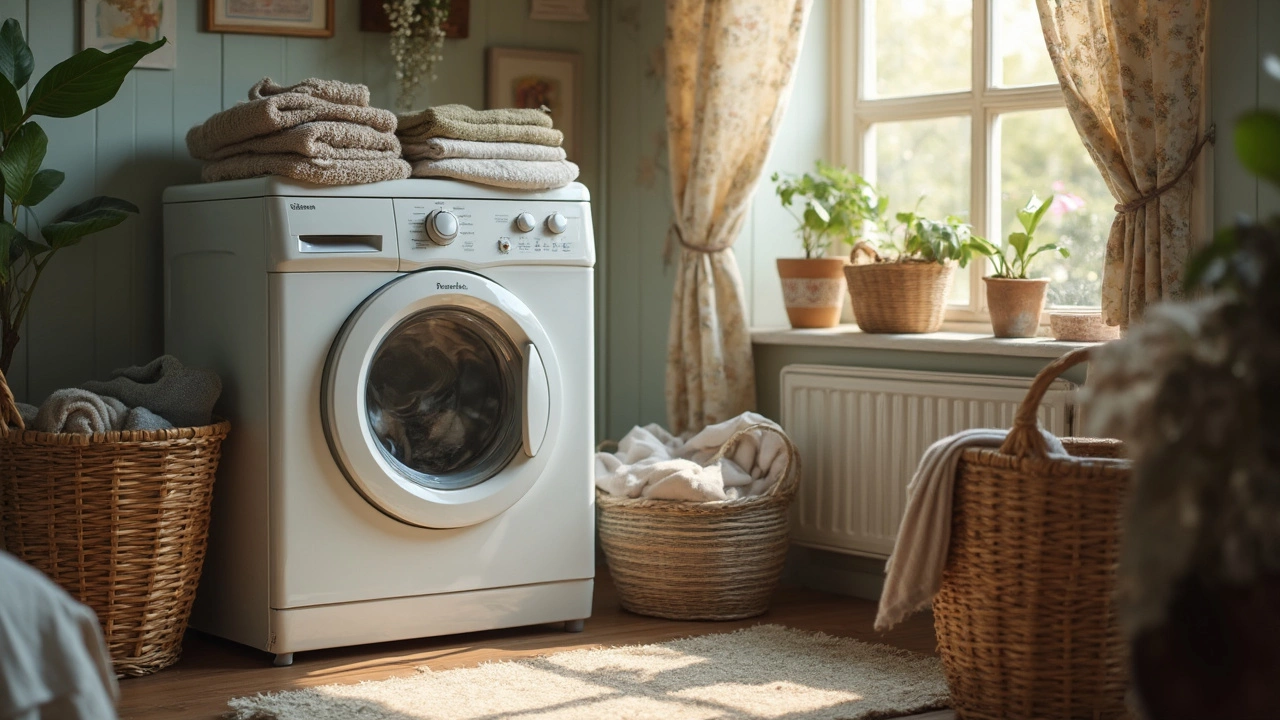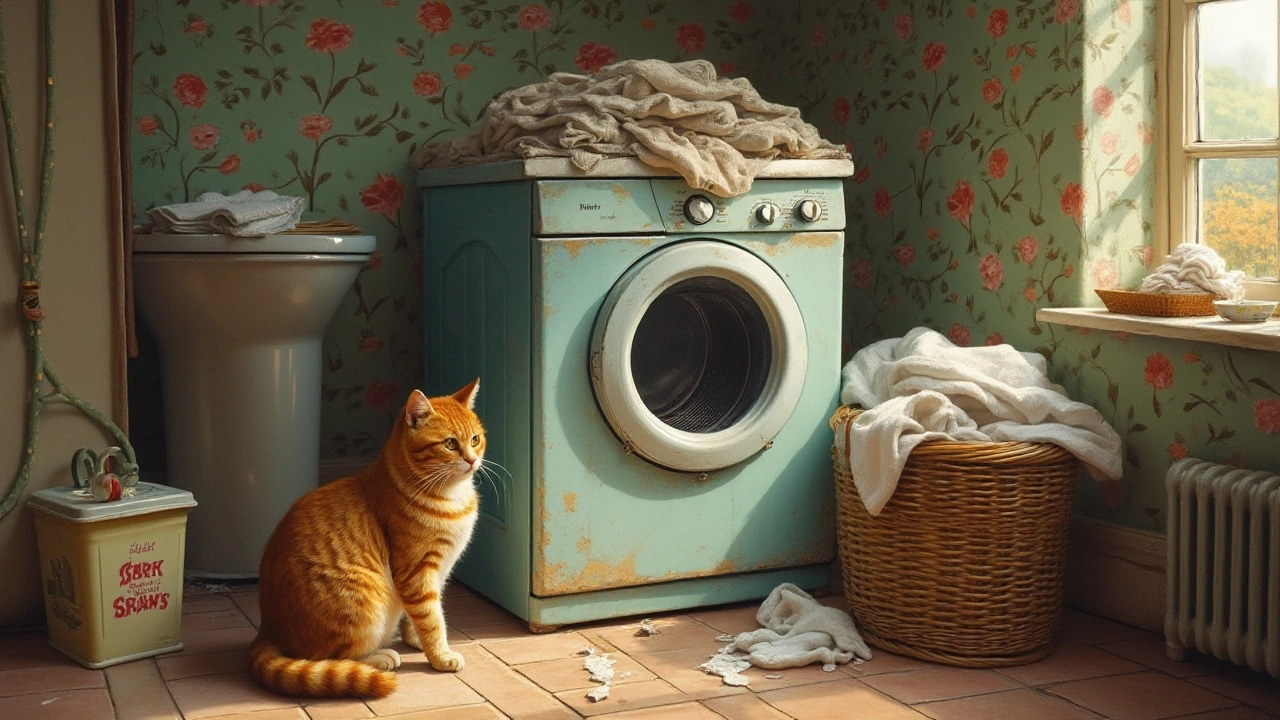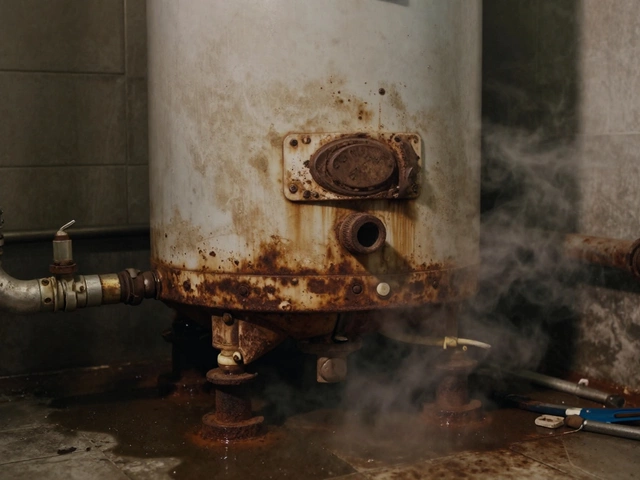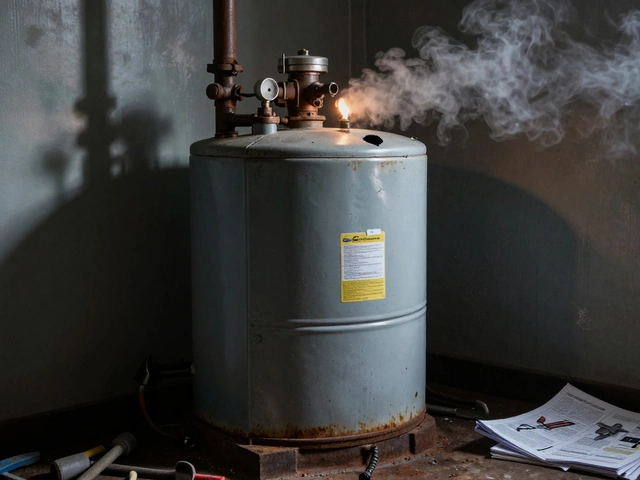Ever wondered how long a washing machine should last? Well, you're not alone. These trusty workhorses handle our laundry woes day in and day out, but they don't last forever. Most washing machines run smoothly for about 10 to 12 years. But hey, it's not just about the years—it's about the mileage, right? How often you use it, how well you maintain it, and even the brand can stretch or shrink that timeline.
Just like keeping your car in tip-top shape, regular maintenance can push that washing machine lifespan to its limits. Cleaning the filters and hoses, using the right detergent, and not overloading the beast can make a huge difference. On the flip side, ignoring these things is like inviting trouble to your laundry routine.
And, here's something you might not know—some brands just tend to stick around longer. Doing a bit of homework on brands that have a reputation for durability might save you from early replacements and those repair bills that seem to pop up just when you least need them. Keep reading to dig into the nitty-gritty of washer longevity and figure out whether it's time to repair, replace, or maybe even upgrade.
- Average Lifespan of Washing Machines
- Factors Affecting Durability
- Maintaining Your Washing Machine
- Signs You Need a Repair
- When to Replace Your Washer
- Choosing a Durable Model
Average Lifespan of Washing Machines
So, how long can you expect that trusty washer in your laundry room to hold up? Typically, washing machines have an average lifespan of about 10 to 12 years. This is if you're treating them right and not, you know, using them as a storage bin or something.
The type of washer you have can also sway this average. For instance, those fancy front-load washers often edge out top loaders by a year or two. That's because they generally handle clothes more gently, leading to less wear and tear on both your clothes and the machine itself.
Let's talk numbers for a sec. According to a study by the Association of Home Appliance Manufacturers, washing machines clock in at over 300 loads a year on average. If you multiply that out, you're looking at thousands of cycles over a decade. Of course, light usage can stretch your machine's life, while families with mountains of kids' soccer gear might find theirs wears out sooner.
Looking to squeeze out a few more years? Regular maintenance is key. Simple stuff like cleaning the drum and checking for leaks can keep things humming along nicely. And don't forget to balance the load—not just your life. Keeping clothes evenly distributed helps prevent that annoying shaking and banging.
All said, your washer's life is like a marriage—give a little care and attention, and you'll enjoy many sock-matching years together. Ignore it, and, well, you'll be visiting the appliance store sooner than you'd like.
Factors Affecting Durability
Alright, let's break down what really affects how long your washing machine lasts. It's not magic; it's about what you do, what you buy, and sometimes, a bit of luck. Here's a look at the nitty-gritty of it all.
Usage Frequency: Using your machine five times a week versus once means different wear and tear levels. More usage generally means a shorter washing machine lifespan.
Load Size: Overloading your washer might seem like a time-saver, but it strains the motor and can cause parts to wear out faster. Always stick to the load size recommended in the manual.
Water Quality: Believe it or not, the quality of water matters. Hard water can leave mineral deposits that gum up the works. A water softener can help if your area has hard water.
Maintenance Practices: Regularly cleaning the machine and checking hoses for wear can prevent early breakdowns. Simple steps like these can turn into major savings down the road.
"Regular maintenance can significantly extend an appliance's life. It’s crucial to follow guidelines provided by your washer's manufacturer," says Mark Jenkins, a repair technician with over 20 years in the field.
Quality and Brand: Let's face it, some brands just last longer. It's worth doing a bit of research before you buy. Brands with a reputation for durability can be costly upfront but save you cash and hassle over time.
And just for a bit of extra clarity, here's a quick table to show how these factors might stack up:
| Factor | Impact on Durability |
|---|---|
| Usage Frequency | High |
| Load Size | Moderate |
| Water Quality | Moderate |
| Maintenance Practices | High |
| Quality and Brand | High |
Once you’ve got these factors in mind, you're better prepared to make your washing machine last longer, saving you more than just a few bucks!
Maintaining Your Washing Machine
If you want your washing machine to go the distance, a bit of regular maintenance is key. Think of it like giving your car an oil change—just a little TLC, and it can run smoother and longer. Here's how you keep it purring along.
First up, clean those filters and hoses. Over time, bits of fabric and dirt can build up, causing blockages that strain your machine. Not cool, right? A simple rinse with warm water once a month can do wonders.
Next on the list is using the right detergent. Now, I know it’s tempting to chuck in more detergent thinking it'll clean better, but trust me, it's a one-way ticket to build-up city. Excess suds can lead to residue inside the tub and other squeezy spots, and that invites the very thing you dread: mildew. So, stick to the recommended amount—your machine (and clothes) will thank you.
Still with me? Awesome. Regular inspections are your next best friend. Check for any leaks or strange noises. These are often the first sign that something's not right. Catching a problem early usually means avoiding a bigger one down the road.
- Clear out lint traps.
- Inspect the hoses for bulges or tears.
- Keep the door slightly open to avoid musty smells.
Finally, don't forget that today's smart washers might even give you a heads-up about maintenance. Many models have diagnostic modes that spot potential issues early. Check your manual for how to use it, and you might find problems before they become headaches.
Hope those tips help in keeping your washing machine lifespan at its peak!
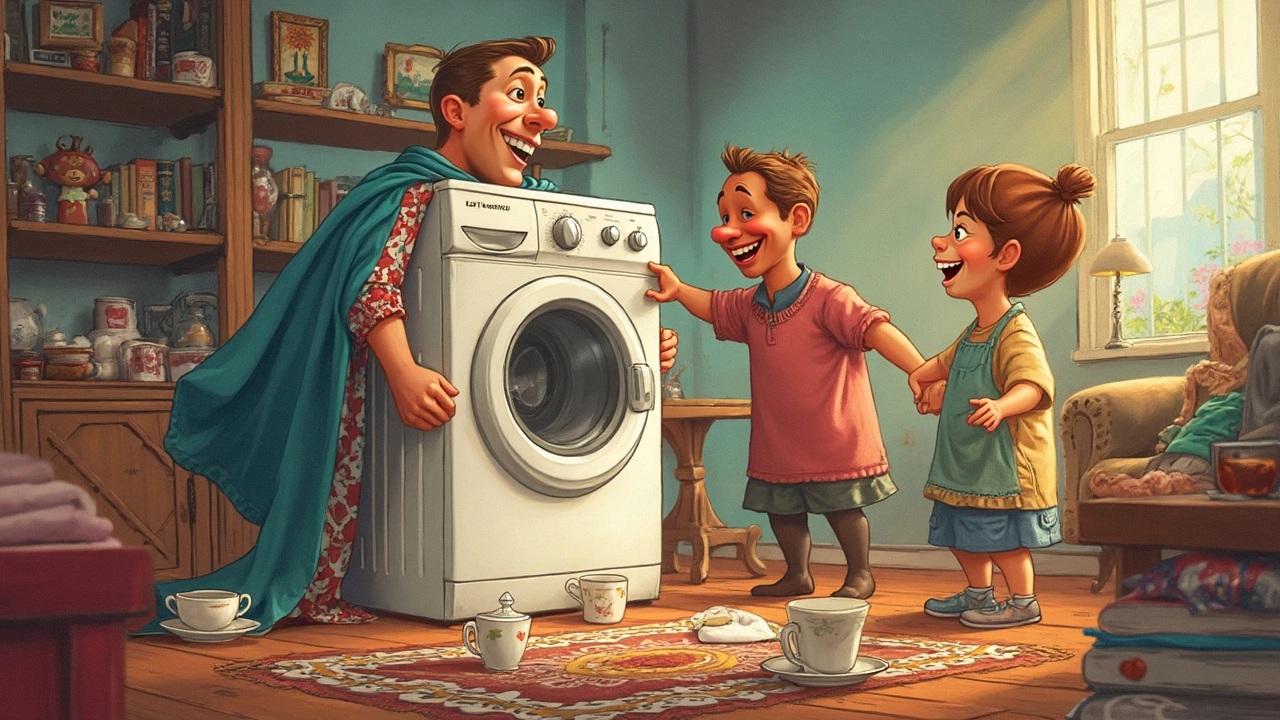
Signs You Need a Repair
Okay, we've all been there. Suddenly, your washing machine starts acting out, and you're left wondering if it's fixable or if you're shopping for a new one. Here are the tell-tale signs that it's time to call in the pros for some washing machine repair.
1. Strange Noises: Is your washer starting to sound more like a jet taking off than a gentle hum? Banging or grinding noises usually mean there's something out of whack inside. It could be anything from a simple misalignment to a more serious mechanical issue.
2. Water Leaks: Finding puddles where there shouldn't be any is a big red flag. Leaks could be from a loose connection, a cracked hose, or even issues with the drum seal. Ignoring it can lead to water damage and a hefty repair bill.
3. Drum Not Spinning: If your clothes come out soaking wet, and the drum didn’t spin, there might be a motor or belt problem. Sometimes, it's a quick fix, but other times it might need more digging.
4. No Power: When pressing that start button doesn’t do a thing, you might be facing electrical issues. Checking the outlet and circuit breaker can be a quick fix, but if everything checks out, it’s time for a professional.
5. Odd Smells: A funky smell greeting you when opening the lid? Yikes! This could mean mold buildup or drainage issues. Regular cleaning helps, but if the smell lingers, a repair might be needed.
If you're experiencing one or more of these issues, don’t stress right away. Some fixes are easier than you’d think, and calling a professional for a diagnosis can help you decide whether to repair or replace your trusty washing machine. Remember, taking care of issues early can save you a lot of time and money in the long run.
When to Replace Your Washer
Alright, let's face it. There comes a time when your trusty washing machine just can't hack it anymore. But how do you know when it's time to say goodbye? First off, if your washer is pushing over 10 to 12 years, it might be on borrowed time. But age isn't the only thing to think about.
Keep an eye out for frequent breakdowns. If you're on a first-name basis with your repair guy, it might be time to consider a replacement. Repairs piling up cost-wise? That's another red flag. Usually, if a single fix costs more than half the price of a new machine, it's probably not worth it.
Speaking of bells and whistles, energy efficiency is another game-changer. Machines today are more energy-efficient and can save a chunk on those utility bills. Craig Anderson from Energy Star says,
"Investing in a newer, efficient model is not just kinder on your wallet in the long run; it’s better for the planet."
Shaky cycles, loud noises, or a washer that waddles like a penguin across your laundry room are signs of a bigger problem. It could mean an issue with the drum or motor that's not worth fixing.
- Age and Wear: Most washers last about 10-12 years. If it's older, think about upgrading.
- Repair Costs: If repairing costs are more than 50% the price of a new model, a replacement is the smarter choice.
- Efficiency: New washers use less water and electricity, cutting utility bills significantly.
- Performance Issues: Unusual noises and vibrations typically hint at irreparable underlying issues.
Replacement might seem like a big step, but with the improvements in technology and efficiency, a new washer can save you money and time in the long run. Plus, you get to check out the latest features, like steam cleaning or smartphone connectivity. So, when the old machine seems more trouble than it's worth, it's probably worth looking into new options.
Choosing a Durable Model
Alright, so you're on the hunt for a washing machine that's as tough as nails and makes those laundry days a breeze. The truth is, some models just outlast others, and knowing which specs and brands to look for can save you a load of trouble.
First up, let's talk brands. Some of the big names like Whirlpool, LG, and Bosch have a reputation for washing machine durability. They usually back their machines with solid warranties too, which is always a reassuring sign.
Now, let's get down to the nitty-gritty of what makes a washer tough. One key factor is the type of motor it uses. Inverter motors are generally more reliable and efficient, reducing wear and tear over time, so they're worth considering.
When it comes to materials, a stainless steel drum is your best bet. Unlike plastic, it doesn't crack or warp easily and can handle higher speeds without flinching. This means your clothes come out cleaner and your machine stays in good shape.
Don't ignore the energy efficiency rating either. A machine that's gentle on power bills tends to be easier on itself too, stretching out its life. Look for those Energy Star labels—they're like a thumbs-up from appliance experts.
- Go for larger drum capacity if you’ve got a big family or do a lot of laundry—it reduces the number of loads you need to run, extending the machine's life.
- Ease of use is important too. Machines with clearer digital displays and fewer complex settings often get fewer use errors, adding to longevity.
Finally, consider smart features like Wi-Fi connectivity. They might sound fancy but getting alerts about important maintenance reminders or using app diagnostics can prevent issues before they snowball into bigger problems.
So, there you have it—your cheat sheet for picking a washing machine that’s built to last. Make sure you weigh these factors next time you're washer shopping, and you'll be set up for the long haul.
